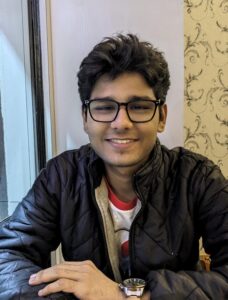
Name: Ashutosh vats
Age: 19 years
“one life die and live in heaven”

Name: Bibek Singh
Age: 28 years
“Do Whatever you want with Passion”

Name: Aakriti Tiwary
Age: 22 years
“Life is really simple and to live is the rarest thing in the world. Most people exist, that is all !”
“Hello, readers! In today’s post, we delve into a topic that affects us all: climate change. What makes this discussion unique is that we’re hearing from three everyday young people, each with their own perspective on this critical issue.
They are not experts, so we had a casual conversation where I asked questions and they answered based on what they felt was right. I was genuinely impressed and felt good knowing that, yes, we are aware of the problem and we also have an idea of the solutions.”
I hope this post gives you something deeper to think about. Thank you, and let’s start!
Q1. When did you notice that climate change is happening? Or when did it feel like climate change is actually real?
Bibek: Two years ago, I felt it myself. I live in Kolkata, where the summer temperature usually stays around 35°C. Earlier, if it got too hot, it would rain on the same day. But for the past two years, this pattern hasn’t been consistent, and it hasn’t been raining as much. That’s when I personally realized that the climate is indeed changing.
Ashutosh: Growing up, we would celebrate Chhat Puja in our neighborhood during the winter season. Back then, we would bundle up in multiple layers – a t-shirt, shirt, sweater, and jacket – for the early morning festivities. However, over the past 3-4 years, I’ve noticed that we can now get away with wearing just a single t-shirt, indicating a significant change in the weather.
Aakriti: When I was around 17 years old and living in Jamshedpur, the weather and climate were very pleasant. It would rain heavily, and the Kharkai River near my house would flood occasionally. However, over the past few years, the floods have decreased, and the water level has been going down. In fact, we’ve had to drill two borewells in the last 2-3 years, and even with a 400-foot pipe, we’re still facing water issues. So, yes, I can see the effects of climate change now.
Q2. Do people often talk about climate change in their everyday conversations, or is it a topic that’s rarely brought up?
Bibek: Climate change is only discussed for a few days, not regularly. And even when people do talk about it, it’s often just for show, like a publicity stunt. For example, last year, during the IPL, there was a rule to plant a tree for every dot ball, but it lasted for the entire season, and this year, it was only for three playoff matches. So, there’s no real discussion or action happening at the ground level, and those who do take action only do it for the sake of appearances.
Ashutosh: Climate change is a topic of discussion, but it’s largely confined to major platforms and conferences, with very little tangible action taken on the ground. Furthermore, there is a significant lack of awareness about the issue among the general public.
Aakriti: Climate change is typically only talked about on Earth Day. While our institute sometimes hosts events where we plant trees, the enthusiasm and effort shown during those events are rarely sustained afterwards, which is a separate issue altogether. In my view, it’s not a topic that’s regularly discussed or incorporated into our daily lives.
Q3. Assessing climate change on a scale of 1 to 10, with 10 representing the most critical condition, how severe do you think our current situation is?
Bibek: In my opinion, it’s 7 to 8.
Ashutosh: I would rate it a 5 because we haven’t reached the worst condition yet.
Aakriti: For me, it would also be a 5.
Q4. Without relying on Google, can you recall an Indian movie that focuses on climate change? Is there a particular film that stands out in your memory as addressing this important topic?
They all paused for a moment, but none of them could recall the name of an Indian movie that focuses on climate change.
Q5. Should Indian films learn a bit from Hollywood, and if Indian films highlight the topic of climate change more, what benefits will it bring?
Bibek: I don’t think movies can have a lasting impact on people’s minds, especially when it comes to critical issues like climate change. People might enjoy a film for a few days, but soon they’ll forget about it. In contrast, movies that focus on sensitive issues like Hindu-Muslim relations might leave a more lasting impression, but climate change is a topic that requires sustained awareness and action, which movies alone cannot achieve.
Ashutosh: Even if a film is entirely dedicated to climate change, it may not resonate with the audience, as there isn’t a sizable demand for such content. While some movies, like Kala or Kantara, have briefly addressed the issue, people are already aware of climate change to some extent. However, relying solely on films to raise awareness is insufficient; the real work needs to be done at the grassroots level.
Aakriti: I agree, Western cinema has less influence over its audience compared to Indian cinema, which has a massive impact. Indian actors and actresses are role models, and movies often hint at issues like climate change, such as depicting droughts or water scarcity, but these topics are usually marginalized or not given the attention they deserve.
Yes, Indian cinema needs to take this topic more seriously and make films that are more impactful, so that the message reaches the people effectively.
Q6.If a teenager is curious about climate change, what essential information or topics would you share with them to nurture their interest and encourage meaningful engagement with this vital subject?
Bibek: I will explain to them the significance of trees and the importance of unity in tackling climate change. By working together, we can pool our resources, share ideas, and draw strength from each other’s motivation, making our collective impact much greater than what we could achieve alone.
Ashutosh: Initially, we need to educate them about the most significant cause of harm, which is plastic pollution, since it doesn’t biodegrade and severely impacts our rivers and environment. Therefore, our primary focus should be on teaching them how to adopt a plastic-free lifestyle.
Aakriti: I believe that rather than simply educating teenagers, we adults must take the lead and set an example by taking concrete actions to address climate change. By doing so, we will demonstrate our commitment and make it easier for the next generation to follow in our footsteps and understand the importance of this issue.
Q7. What are 2-3 simple changes we can make in our daily lives to make a small but significant contribution towards a healthier climate?
Bibek: Plant a tree near your home and also speak out against tree cutting when we witness it, rather than remaining silent bystanders.
Ashutosh: Working from home is a solution because the more humans go out, the more pollution and waste will be generated. Additionally, we should strive to decrease chemical usage in various areas such as food production, fabric coloring, and other industries, which will help mitigate their harmful effects on the environment.
Aakriti: Let’s emphasize upcycling! In the fashion industry, we’re exploring ways to breathe new life into existing materials through upcycling, which is crucial for sustainable fashion. By transforming waste products like plastic bottles and wrappers into unique items like jewelry and bags, we can reduce our reliance on plastic and embrace creative alternatives. Upcycling helps us think outside the box and find innovative solutions to minimize waste and promote eco-friendliness.
Q8. What are 2-3 key actions the government can take to effectively address climate change, in your opinion?
Bibek: The big factories that release gases and produce toxic gases need to find an alternative soon, which the government can do. Similarly, the chemical factories that dump their waste into rivers also need to find a solution.
Ashutosh: To be frank, the government’s ability to effect change is limited compared to the collective power of the people. However, the government can establish an independent agency or task force to address environmental issues efficiently. If citizens raise their voices or demand action.
Aakriti: Build a community that takes consistent, daily action towards creating a better future. By dedicating time to research and exploration, we can uncover innovative solutions to the environmental challenges we face, and work towards a more sustainable tomorrow.
Q9. What do you think about death?
Bibek: Death can happen anytime, even tonight, but what’s important is not death itself, but what you’ve done in your life that makes people remember you respectfully even after you’re gone. That’s what matters.
Ashutosh: My only wish is to die peacefully, not from a dangerous disease in its final stage.
Aakriti: As an overthinker, I have a deep-seated fear of death, which leads me to ponder extensively about the unknowns of the afterlife and what lies beyond. My mind often wanders to thoughts of what happens after we pass on, and I find myself lost in these introspective musings.
———–Thank You———
–
Pingback: The 99% Effort Philosophy: How Failure Can Still Set You Free - AbhiRah